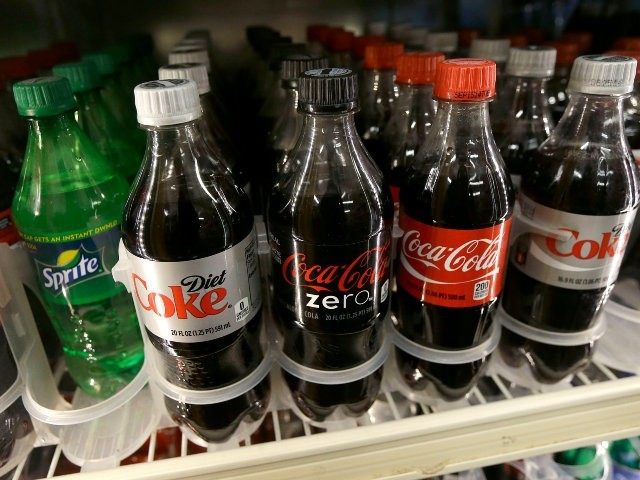Although Berkeley, California claims its “soda tax” cuts unhealthy purchases by 21 percent, it mostly taxes the poor and exempts the high-sugared coffee treats that the upper-class crave.
The pioneering 2014 law led to elitists in Mexico, England, and France pushing through taxes on sugar-laden soda beverages; while Philadelphia became the second city in the United States to pass a soda tax in June. Similar ordinances are now on the November ballots in the three Northern California cities of San Francisco, Oakland and Albany.
According to a new University of California study published in the American Journal of Public Health less than three months before the local Bay Area elections, Berkeley’s penny-per-ounce tax levy on sugary soda drinks is being hailed a major public health success in reducing sugar drinks that cause high rates of obesity and Type 2 diabetes.
Opposition to a “soda tax” normally focuses on the discriminatory nature of singling out one sugared item in the grocery cart as the culprit for bad health. But the more insidious issue is that soda taxes are specifically discriminatory by economic class.
Elite upper-class UC professors would vocally shame a soda guzzlers carrying a 64 ounce Mountain Dew Arctic Burst, but they are mum when it comes to their own Starbucks Venti Caramel Brulée Frappuccino, packed with 520 calories. Furthermore, large sugary coffee drinks contain about 50 percent of an adult’s daily recommended allowance of saturated fat.
According to one New York City poll, only 11.2 percent of those living in the elite upscale Chelsea or Greenwich Village and just 18.4 percent of adults in the tony Upper East and West Sides popped a soda a day. That was far below the poor neighborhoods of Brooklyn’s Flatbush, where 45.7 percent popped a soda each day and the South Bronx, where 45.5 percent of residents are daily soda drinkers.
But if the study would have included sugared coffee drinks, the percentage of elites that imbibe sugared drinks would have been much more similar. There are 2,000 Starbucks locations in New York City, with the vast majority in upscale communities. For the low sugared soda drinkers of Chelsea, Greenwich Village and Upper East and West Sides, there is a Starbucks every two blocks on average, plus plenty of coffee competitors.
Furthermore, national canned soda sales have been in a decade-long decline, dropping another 1.2 percent in 2015, according to Beverage Digest. But sugary “ready-to-drink” canned coffee drinks jumped by 19 percent in 2015. Canned coffee beverages volume grew by 48.1 percent over the last five years, from 50.6 million to 89.7 million gallons.
None of the nations or the cities that have passed or have on the ballot a “Starbucks Tax” on frothy sugared coffee concoctions, because it would be wildly unpopular to tax the same upper-class politicians and elites that tend to push “nanny state” laws.
John Cawley, professor of public policy and economics at Cornell University, is suspicious that the UC Berkeley study may be flawed because retailers absorbed 30-50 percent of the tax.
Cawley agreed that “when prices go up, people buy less,” due to the law of demand. “But this is a very large decrease.” He added sarcastically, “It will be interesting, as more information comes in, whether this finding holds up.”

COMMENTS
Please let us know if you're having issues with commenting.